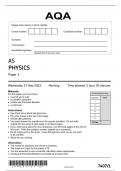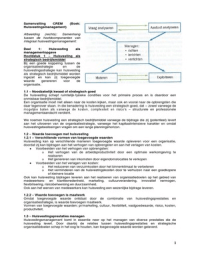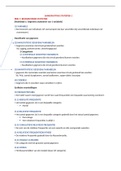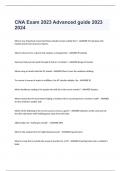Please write clearly in block capitals.
Centre number Candidate number
Surname
Forename(s)
Candidate signature
I declare this is my own work.
AS
PHYSICS
Paper 1
Wednesday 17 May 2023 Morning Time allowed: 1 hour 30 minutes
Materials
For Examiner’s Use
For this paper you must have:
• a pencil and a ruler Question Mark
• a scientific calculator
1
• a Data and Formulae Booklet
• a protractor. 2
3
Instructions 4
• Use black ink or black ball-point pen.
5
• Fill in the boxes at the top of this page.
• Answer all questions. 6
• You must answer the questions in the spaces provided. Do not write TOTAL
outside the box around each page or on blank pages.
• If you need extra space for your answer(s), use the lined pages at the end of
this book. Write the question number against your answer(s).
• Do all rough work in this book. Cross through any work you do not want
to be marked.
• Show all your working.
Information
• The marks for questions are shown in brackets.
• The maximum mark for this paper is 70.
• You are expected to use a scientific calculator where appropriate.
• A Data and Formulae Booklet is provided as a loose insert.
*JUN237407101*
IB/M/Jun23/E7 7407/1
, 2
Do not write
outside the
Answer all questions in the spaces provided. box
0 1 A strong interaction between a negative kaon (K−) and a proton (p) produces
an omega-minus (Ω−) particle, a neutral kaon (K0) and an unidentified particle Y.
The interaction is:
K− + p → Ω− + K0 + Y
Table 1 contains information on the particles in this interaction.
Table 1
K− p Ω− K0 Y
Rest energy / MeV 493.8 938.3 1672 497.8 493.8
Baryon number +1 +1 0
Charge −1e +1e −1e 0
Strangeness −1 0 −3 +1
0 1 . 1 Complete Table 1.
[2 marks]
0 1 . 2 Calculate, in J, the rest energy of the Ω−.
[2 marks]
rest energy = J
*02*
IB/M/Jun23/7407/1
, 3
Do not write
outside the
0 1 . 3 Suggest how energy is conserved in this interaction. box
Refer to the rest energies of the particles in Table 1.
[2 marks]
The quark structure of the Ω− particle is sss.
The Ω− is unstable. It decays into a proton through a series of decays:
Ω− → Ξ0 + π−
followed by
Ξ0 → Λ0 + π0
followed by
Λ0 → p + π−
The Ξ0 and Λ0 are both hadrons.
0 1 . 4 Deduce the quark structure of the Λ0 particle.
[4 marks]
quark structure of Λ0 =
Question 1 continues on the next page
Turn over ►
*03*
IB/M/Jun23/7407/1









